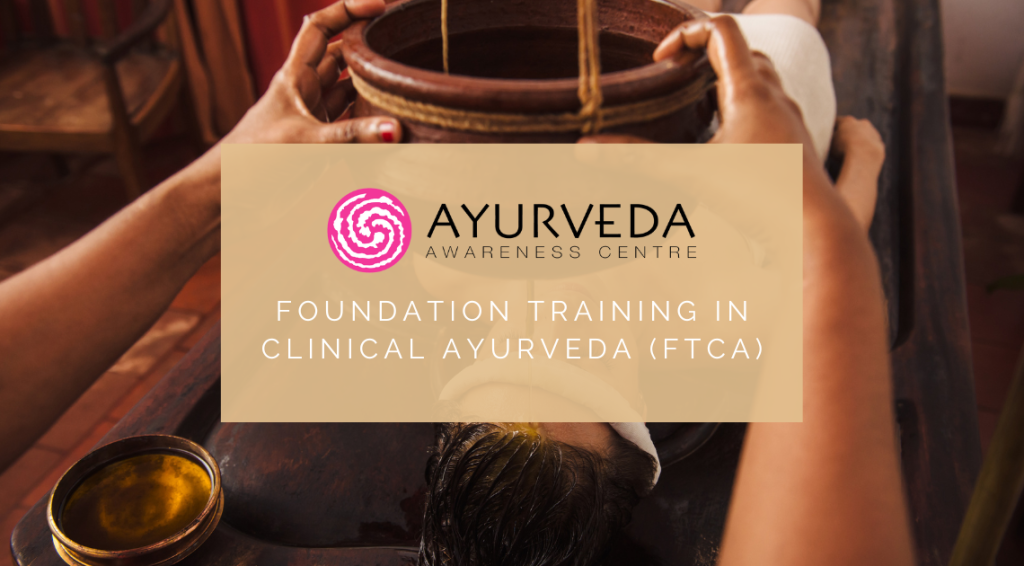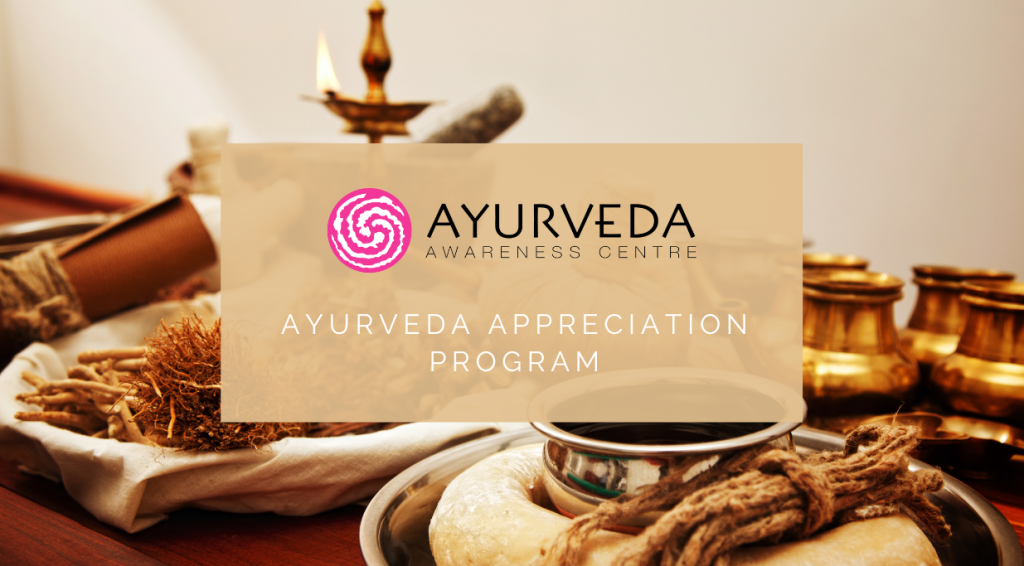Discover Six Top Tips for Managing Stress in our FREE eCourse
Ayurveda For Practitioners
Ayurveda For Practitioners
At the Ayurveda Awareness Centre (AAC), we have been at the forefront of providing authentic Ayurvedic education and training since 2000. Our commitment is to empower GPs and other health practitioners with the knowledge and skills to integrate Ayurveda into their clinical practice, enhancing both physical and mental wellness in their clients.
Our programs are designed to integrate ancient Ayurvedic knowledge with modern health practices.
Foundation Training in Clinical Ayurveda (FTCA)
Ayurveda Appreciation Program
Why Choose Ayurveda Awareness Centre?
- Expert Leaders: Learn from experienced Ayurvedic professionals with deep practical expertise.
- Accreditation: Our programs are recognised by leading Ayurvedic associations.
- Community and Support: Become part of a community of practitioners dedicated to holistic health and wellness.
Integrate the holistic wisdom of Ayurveda into your practice and offer a more comprehensive approach to health care.
Ayurveda is a traditional healing system that takes a holistic approach to health and well-being. The FTCA is designed to teach you the Foundations of Clinical Ayurveda so that you can use it in your practice or daily life. By the end of the Foundation Training in Clinical Ayurveda (FTCA), you will have gained a comprehensive understanding of Ayurvedic principles and practices. You will be equipped with the knowledge and skills required so you can look after your own and your family’s health, or integrate Ayurvedic practices into your professional practice offering and your daily life.
Whether you’re a health professional, a student studying natural health, or simply an individual interested in Ayurveda, this course is curated to meet your needs. Ayurveda is not just a system of medicine; it’s a way of life that recognises the deep connection between human beings and the natural world. Ayurveda is all about understanding our connection to nature and the Laws of Nature that govern our existence. Throughout this course, we will explore the fundamental principles of Ayurveda and how they relate to our mind-body processes.
FAQs by Medical Practitioners
Ayurveda complements Western medicine by offering a holistic approach, addressing root causes, and providing personalised dietary and lifestyle recommendations to enhance overall well-being.
Ayurveda is the ultimate individualised system of self-care and treatment. It addresses the biological individuality of a person by establishing their genetic body type (Prakruti or body type). This is in ayurvedic science called Dosha and is determined by the patterns of expression of the individual’s genes. Identifying the doshic individuality of a patient (Prakruti) can equip the GP with a vast layer of predictive information, enabling the practitioner to understand the biological individuality of the health and disease process in any given patient. Each body type has a specific pattern of expression which can be easily taught to a GP.
Yes, Ayurveda can be integrated into existing treatment plans. It focuses on supporting patients through personalised dietary adjustments, lifestyle practices, and stress reduction, potentially improving treatment outcomes
Ayurveda can be beneficial as a supplement in various conditions, especially those influenced by lifestyle factors such as stress, digestive issues, and chronic diseases like diabetes or hypertension.
Ayurveda considers each individual’s unique constitution (Prakruti) and imbalances (Vikruti), tailoring recommendations based on this personalised assessment. This aligns with the trend towards precision and individualised care in Western medicine.
Yes, Ayurvedic practices, including meditation, yoga, and specific dietary choices, aim to reduce stress and promote mental well-being. Integrating these practices can contribute to a more comprehensive approach to managing stress-related conditions.
Ayurveda emphasises preventive care through lifestyle modifications, dietary choices, and stress reduction. It can be particularly valuable in preventing lifestyle-related diseases like diabetes, hypertension, and obesity.
Ayurveda addresses mental health by balancing doshas, emphasising a sattvic (pure) diet, and promoting stress reduction practices. Collaboration with mental health professionals can enhance overall care.
Ayurveda offers dietary and lifestyle strategies for managing digestive disorders. Integrating these practices with Western medical treatments can provide a comprehensive approach to digestive health.

